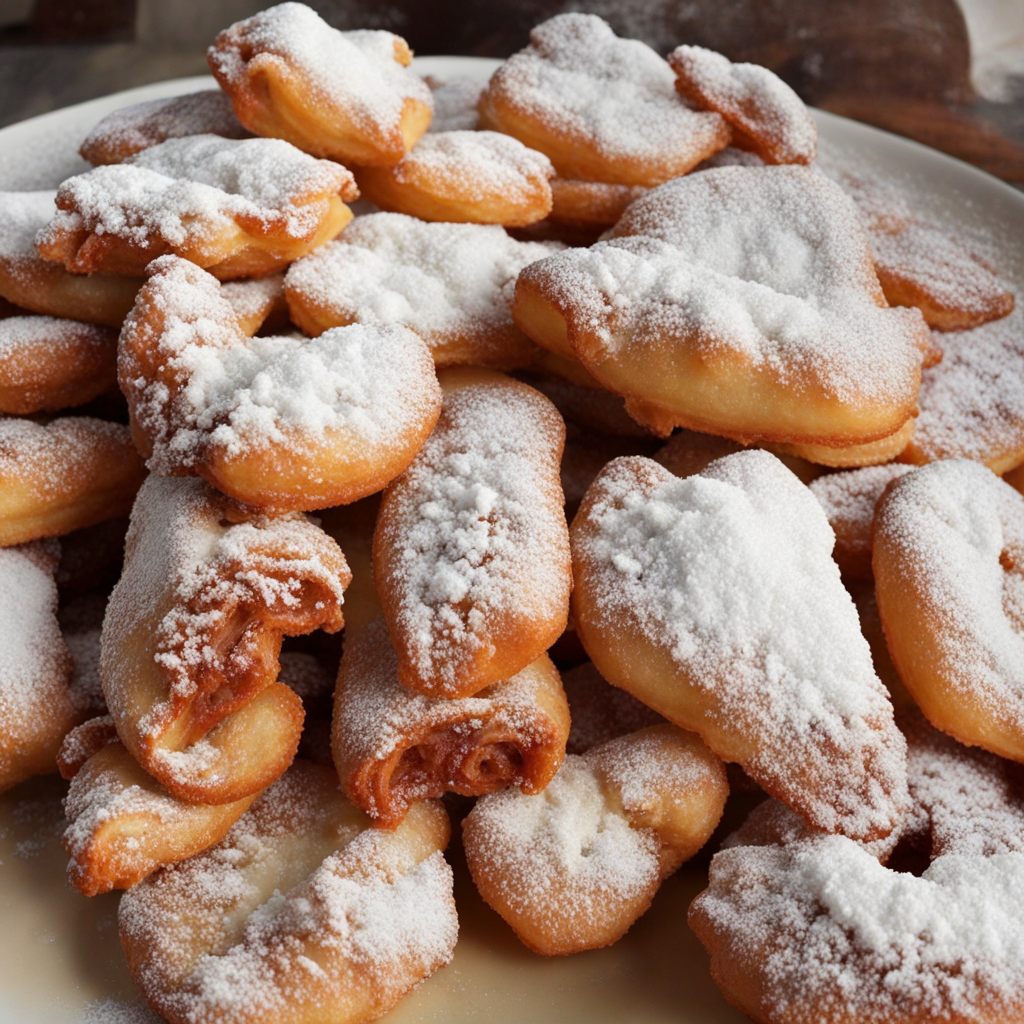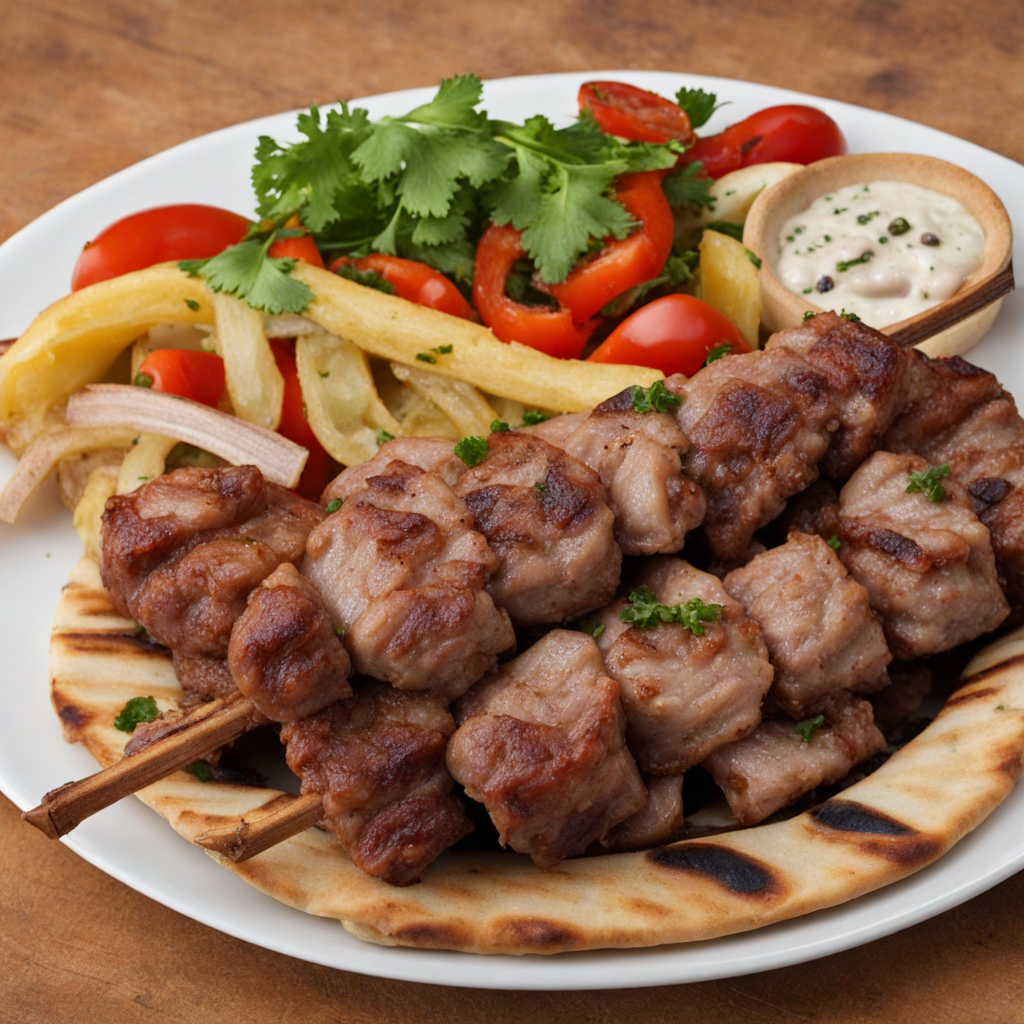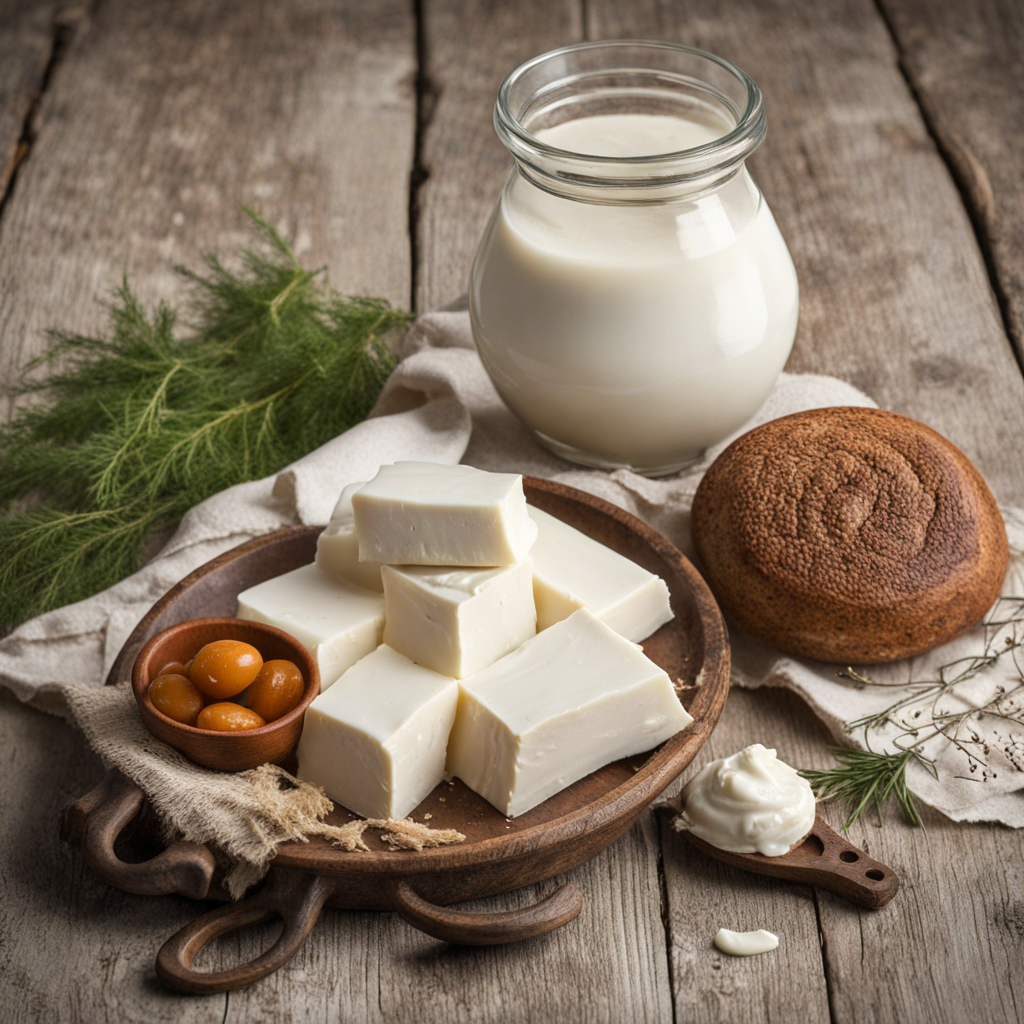Llokuma
Llokuma is a delightful dessert that captures the essence of traditional Kosovo cuisine, offering a unique taste experience that is both comforting and indulgent. These small, fluffy doughnuts are made from a simple mixture of flour, sugar, and yeast, creating a light and airy texture that melts in your mouth. Often fried to golden perfection, llokuma are typically dusted with powdered sugar or drizzled with honey, adding a touch of sweetness that complements their subtle flavor. The aroma of freshly fried llokuma fills the air, inviting you to savor each bite as their irresistible scent wafts through the room. Traditionally enjoyed during festive occasions or family gatherings, llokuma embodies the spirit of togetherness and celebration in Kosovo. As you take a bite, you'll experience a warm, pillowy center that contrasts beautifully with the crispy outer layer. Some variations may include fillings such as jam or nuts, introducing an unexpected burst of flavor that elevates the overall experience. Whether enjoyed alongside a cup of coffee or as a standalone treat, llokuma brings joy and satisfaction to any palate. Exploring llokuma is not just about tasting a new dessert; it's about immersing yourself in the rich culinary heritage of Kosovo. This beloved treat is often made by hand, reflecting the care and tradition passed down through generations. Each bite tells a story of the land and its people, making it a must-try for anyone looking to expand their culinary horizons. With its delightful combination of textures and flavors, llokuma is sure to leave a lasting impression, inviting you to return for more.
How It Became This Dish
The Sweet and Savory Journey of Llokuma: A Culinary Treasure from Kosovo #### Origins Llokuma, a cherished dessert in Kosovo, boasts a rich history that weaves together the threads of Mediterranean and Balkan culinary traditions. Its name derives from the Turkish word "lokma," which means "mouthful" or "bite," reflecting its small, delectable size. This delicacy can be traced back to the Ottoman Empire, which had a profound influence on the region's cuisine, introducing a variety of sweets and pastries that would evolve over time into local specialties. The very essence of llokuma lies in its simple yet wholesome ingredients: flour, sugar, yeast, and water, often flavored with hints of citrus or spices. The dough is deep-fried to golden perfection and then soaked in syrup, usually a concoction of sugar and water, sometimes flavored with lemon or rose water, enhancing its sweetness and aroma. The result is a soft, pillowy treat with a crisp exterior, embodying the duality of texture that makes llokuma so irresistible. #### Cultural Significance In Kosovo, llokuma is more than just a dessert; it is a symbol of hospitality and celebration. Traditionally served at family gatherings, weddings, and religious festivities, this sweet treat embodies the spirit of community and togetherness. Preparing llokuma is often a communal affair, where family members gather to roll the dough, fry the pieces, and drizzle them with syrup, sharing laughter and stories as they work. The cultural significance of llokuma extends beyond its role in celebrations. It represents the resilience and adaptability of the Kosovo people. Kosovo's tumultuous history, marked by conflict and upheaval, has shaped its culinary landscape. Despite these challenges, the tradition of making llokuma has endured, serving as a reminder of home, comfort, and the importance of family and community bonds. #### Development Over Time As Kosovo's historical and cultural landscape evolved, so too did llokuma. With the fall of the Ottoman Empire in the early 20th century and the subsequent rise of nationalism, traditional dishes began to be reinterpreted and reimagined. The people of Kosovo embraced llokuma, giving it a unique local twist while maintaining its Ottoman roots. In the mid-20th century, during the period of socialist Yugoslavia, llokuma became part of a broader culinary renaissance. As cities modernized and food production became more industrialized, many families began to adopt faster, more efficient methods of preparation. While some traditional recipes remained intact, others saw adaptations that reflected contemporary tastes and lifestyles. For instance, variations emerged that incorporated local ingredients, such as walnuts or hazelnuts, into the syrup, adding depth and flavor to the traditional dish. In the 1990s, following the Kosovo War, the country faced significant challenges, including economic hardship and social upheaval. Yet, amidst these difficulties, the tradition of llokuma persisted. It became a symbol of resilience and hope, reminding people of their shared heritage and the power of food to bring comfort during trying times. Homes and bakeries continued to produce llokuma, ensuring that the recipe would not be lost to history. In the 21st century, with Kosovo's increasing integration into a globalized world, llokuma has begun to attract attention beyond its borders. Food enthusiasts, tourists, and culinary historians have started to embrace this delightful treat, recognizing its significance within the broader context of Balkan cuisine. Local bakeries and restaurants have begun to showcase llokuma in innovative ways, sometimes pairing it with modern twists, such as ice cream or fresh fruit, while still honoring its traditional roots. #### Modern Interpretations and Global Recognition Today, llokuma can be found not only in Kosovo but also in various Balkan restaurants around the world, from Europe to North America. The rise of social media has further propelled this dessert into the global spotlight, with food bloggers and influencers sharing their experiences and recipes, thus fostering a renewed interest in traditional Balkan dishes. The hashtag #llokuma has gained traction, with countless posts showcasing this delightful treat in various settings, from home kitchens to elegant restaurants. The global interest in llokuma also speaks to a broader trend of rediscovering and celebrating traditional foods. As people seek authentic culinary experiences, dishes like llokuma serve as a gateway to understanding the rich cultural tapestry of Kosovo and the Balkans. Culinary tourism has emerged as a significant contributor to Kosovo's economy, with visitors eager to explore its vibrant food scene, including local markets, street food, and traditional restaurants where llokuma is a staple. Moreover, the rise of fusion cuisine has inspired chefs to experiment with llokuma, incorporating elements from various culinary traditions. For instance, some have started to fill llokuma with decadent creams or chocolate, while others may serve it alongside exotic dips or sauces, creating a bridge between traditional and contemporary food experiences. #### Conclusion Llokuma is more than just a sweet treat; it is a cultural artifact that embodies the history, resilience, and spirit of the people of Kosovo. From its Ottoman origins to its modern interpretations, llokuma has evolved while staying true to its roots, representing the enduring nature of culinary traditions in the face of change. As it continues to find its place on both local and international food stages, llokuma serves as a delicious reminder of the power of food to connect individuals, families, and communities across time and space. In celebrating llokuma, we not only savor its delightful flavor but also honor the stories and traditions that have shaped it, fostering a deeper appreciation for the rich culinary heritage of Kosovo and the Balkans. So, whether enjoyed at a festive gathering, a family meal, or even in a bustling café, each bite of llokuma carries with it the warmth of shared memories and the promise of enduring connections.
You may like
Discover local flavors from Kosovo







